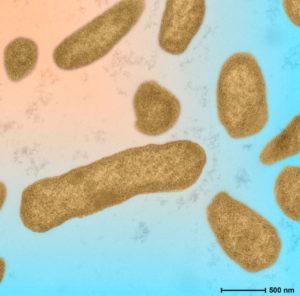Scientists from the Institut Pasteur and the CNRS, working in collaboration with US and Australian teams, have completed the full genomic and evolutionary characterization of the strain of the Elizabethkingia anophelis bacterium that affected around 60 people in Wisconsin in 2015-2016. Their research reveals that this outbreak was caused by a highly mutant strain of E. anophelis. It is unusual for bacteria to have such a high rate of mutation, and this property could confer a selective advantage on this strain – which is also notable for its resistance to several antibiotics. These data, published on May 24, 2017 in the journal Nature Communications, have been made available to the international scientific community.
© Recherche
Actualités
Emerging diseases: a highly mutant strain of the Elizabethkingia bacterium caused an outbreak in Wisconsin

Équipe: Génomique Évolutive des Microbes

Équipe: Hub de Bioinformatique et Biostatistique

Équipe: P2M – Plateforme de microbiologie mutualisée

Projet transversal: Labex IBEID – Integrative Biology of Emerging Infectious Diseases

Département de: Génomes et Génétique

Membre : Amandine Perrin

Membre : Elise Larsonneur

Membre : Olaya Rendueles-Garcia

Membre : Dominique Clermont

Membre : Vincent Enouf

Membre : Eduardo Rocha

Membre : Alexis Criscuolo

Membre : Marie Touchon

Membre : Sylvain Brisse

